ENGR338 Lab 2021 Spring
Lab 1 Superposition and Thevenin Review
Name: Keon Nez
Email: ktnez@fortlewis.edu
Superposition & Thevenin Review
Introduction
These theorems are extremely important in practice. Every time an
engineer talks about input or output voltage/current it is applying
these theorems implicitly. What
an engineer seldom uses in practice, especially nowadays in the era of
SPICE simulators, are all those methods for calculating all the
electrical quantities in a circuit, like nodal or mesh analysis and the
like. Although an engineer should know about them for theoretical
reasons, spending too much time in becoming the master of nodal
analysis resolution is not time well spent. Much better to learn how to
apply Thevenin's and Superposition theorems (and a couple of other
tricks) at a glance even in complicate circuits.
Method Calculations
Hand calculations of both Superposition and Thevenin circuit
demonstration, to be tested in LTSpice. The SPICE simulations must be
built using only spice code, not symbols/schematics.
Task 1:
Using the superposition theory to calculate all the voltages and currents in the following circuit. To verify all the values using LTSpice (Spice code only, Not using symbols/schematics).
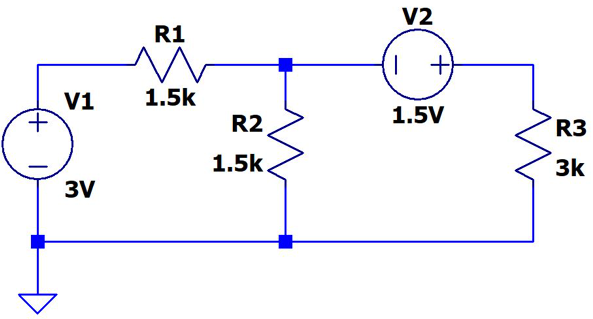
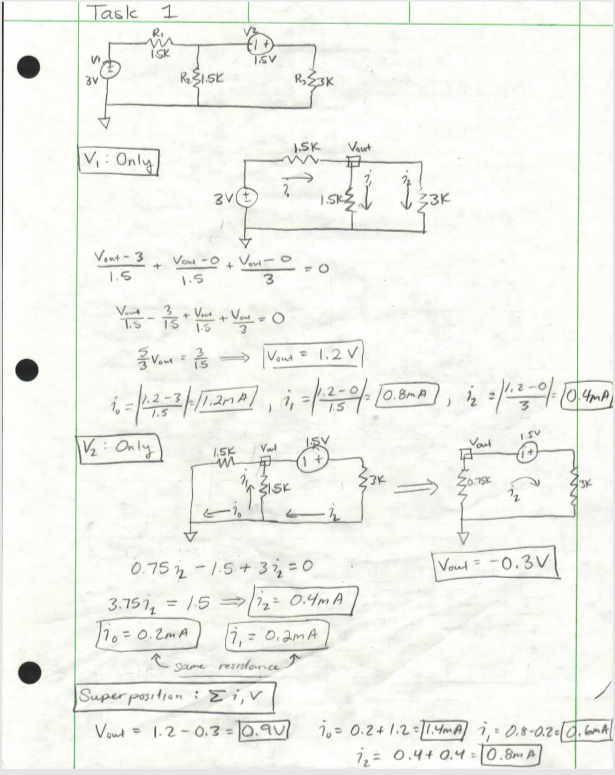
Task 2:
Treating the 4nF CL as the load. I converted the circuit on the left hand side of CL into its Thevenin's equivalent circuit. Assigning a random PULSE function to the voltage source.
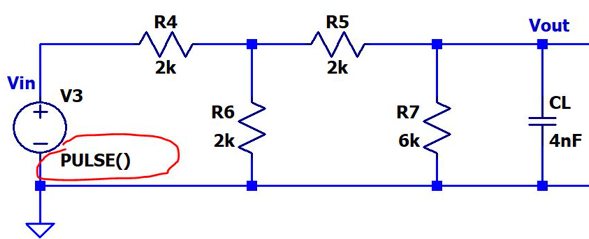
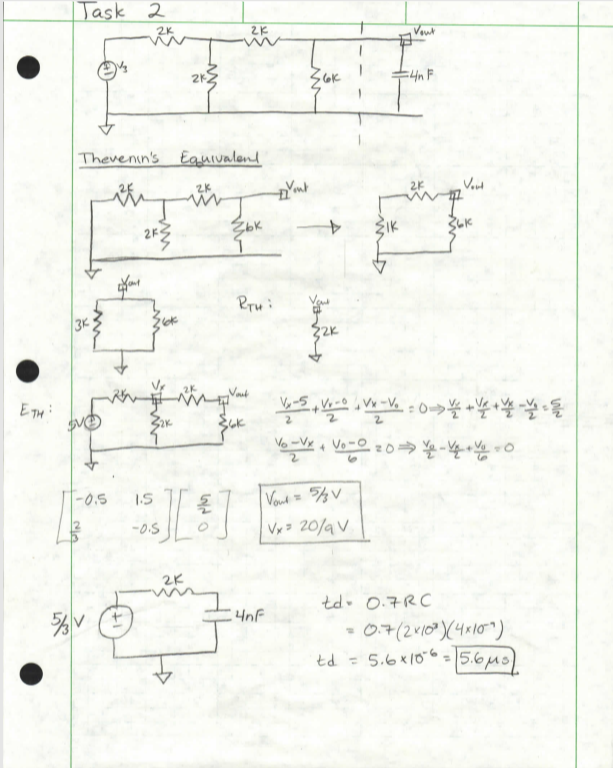
Results:
Recreate both circuits in LTSpice using only spice code. To test our
theorectical calculations verses the LTSpice simulations results.
Task 1:
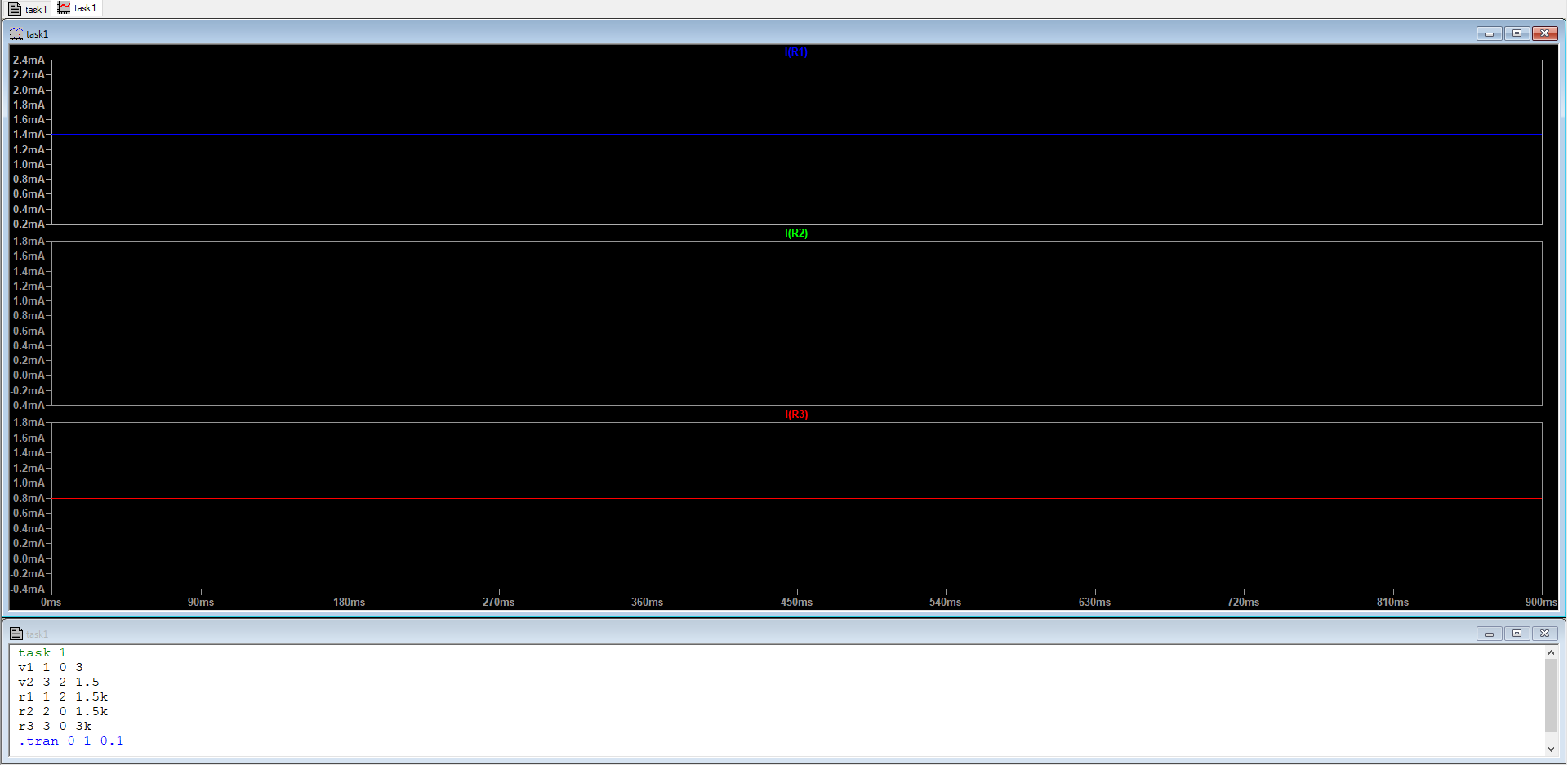
Task 2:
In order to define
the parameters of the PULSE() function on my own. I had to show a nice time delay of my input/output and the output is fully
charged to the full voltage during the periods.
The arguments in the
PULSE() function are: PULSE (LowVoltage HighVoltage Delay RisingTime FallingTime OnTime Period).
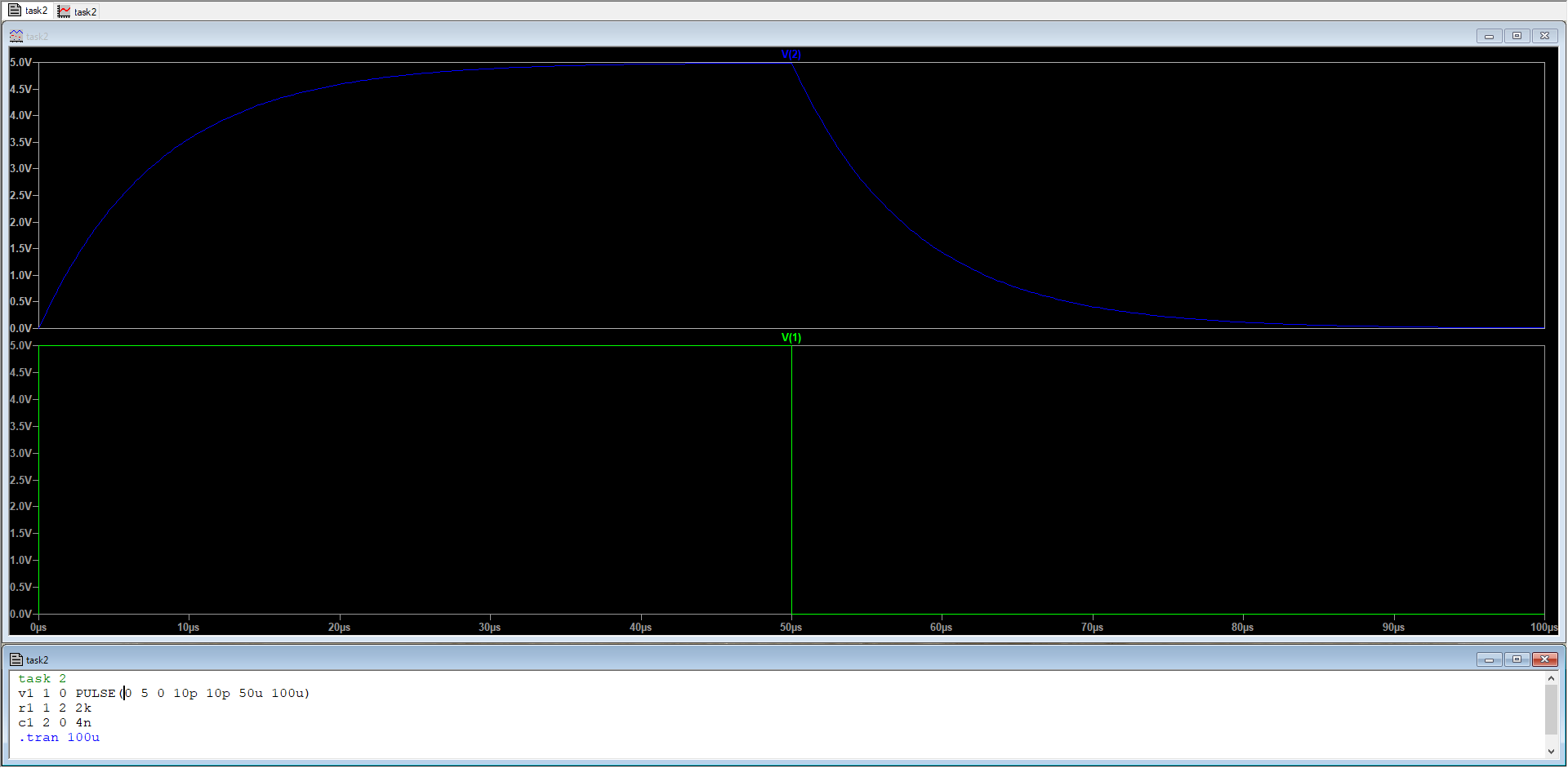
Discussion
The results of the LTSpice simulations were consistent with my hand
calculations on paper. So I can conclude that the review was a complete
success, to hone my skills back into circuits.